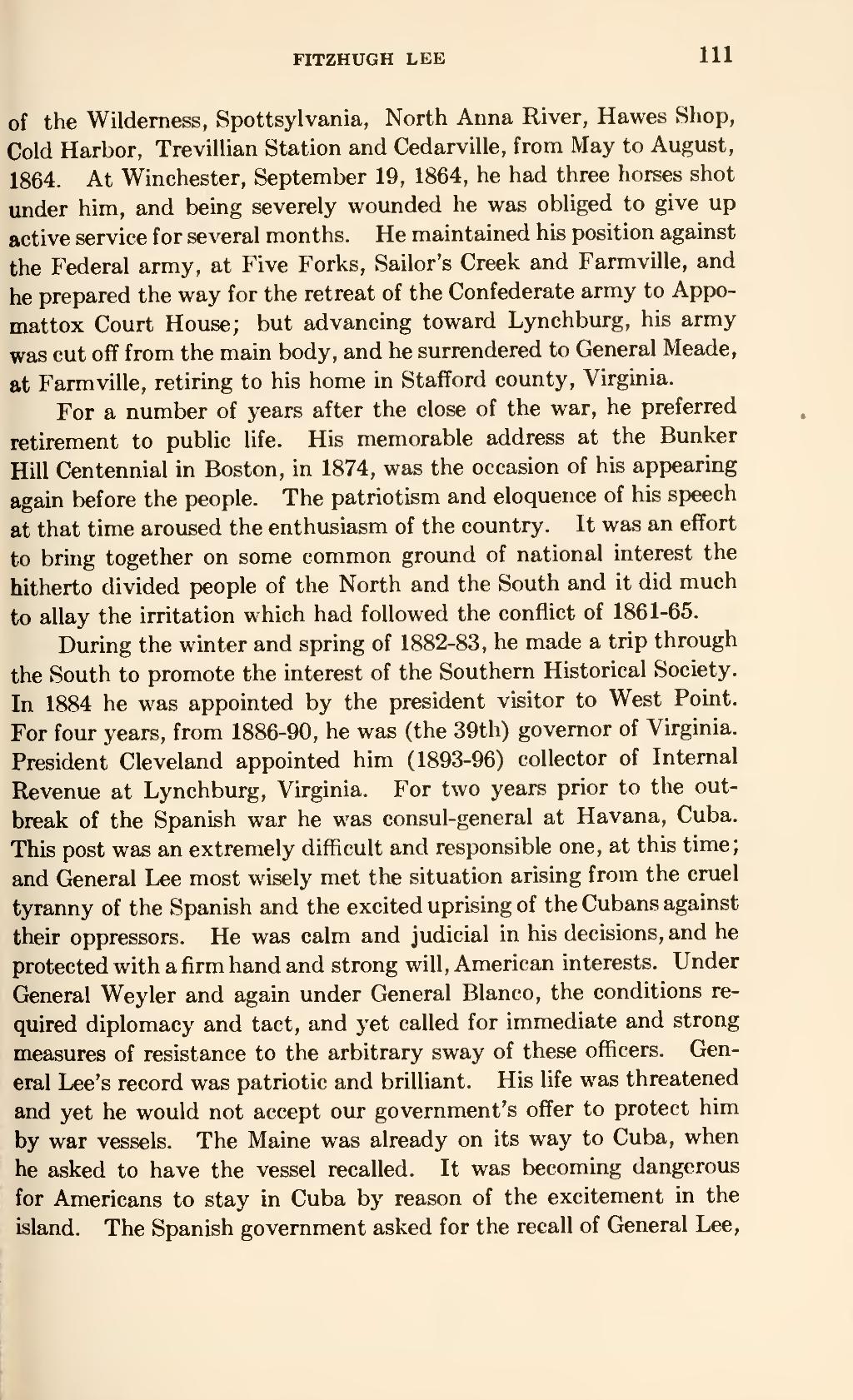of the Wilderness, Spottsylvania, North Anna River, Hawes Shop, Cold Harbor, Trevillian Station and Cedarville, from May to August, 1864. At Winchester, September 19, 1864, he had three horses shot under him, and being severely wounded he was obliged to give up active service for several months. He maintained his position against the Federal army, at Five Forks, Sailor's Creek and Farmville, and he prepared the way for the retreat of the Confederate army to Appomattox Court House; but advancing toward Lynchburg, his army was cut off from the main body, and he surrendered to General Meade, at Farmville, retiring to his home in Stafford county, Virginia.
For a number of years after the close of the war, he preferred retirement to public life. His memorable address at the Bunker Hill Centennial in Boston, in 1874, was the occasion of his appearing again before the people. The patriotism and eloquence of his speech at that time aroused the enthusiasm of the country. It was an effort to bring together on some common ground of national interest the hitherto divided people of the North and the South and it did much to allay the irritation which had followed the conflict of 1861-65.
During the winter and spring of 1882-83, he made a trip through the South to promote the interest of the Southern Historical Society. In 1884 he was appointed by the president visitor to West Point. For four years, from 1886-90, he was (the 39th) governor of Virginia. President Cleveland appointed him (1893-96) collector of Internal Revenue at Lynchburg, Virginia. For two years prior to the outbreak of the Spanish war he was consul-general at Havana, Cuba. This post was an extremely difficult and responsible one, at this time; and General Lee most wisely met the situation arising from the cruel tyranny of the Spanish and the excited uprising of the Cubans against their oppressors. He was calm and judicial in his decisions, and he protected with a firm hand and strong will, American interests. Under General Weyler and again under General Blanco, the conditions required diplomacy and tact, and yet called for immediate and strong measures of resistance to the arbitrary sway of these officers. General Lee's record was patriotic and brilliant. His life was threatened and yet he would not accept our government's offer to protect him by war vessels. The Maine was already on its way to Cuba, when he asked to have the vessel recalled. It was becoming dangerous for Americans to stay in Cuba by reason of the excitement in the island. The Spanish government asked for the recall of General Lee,
